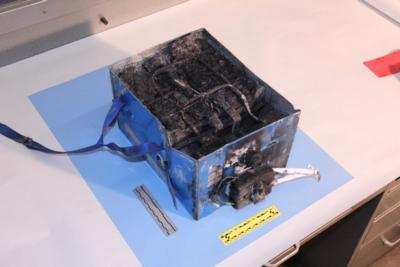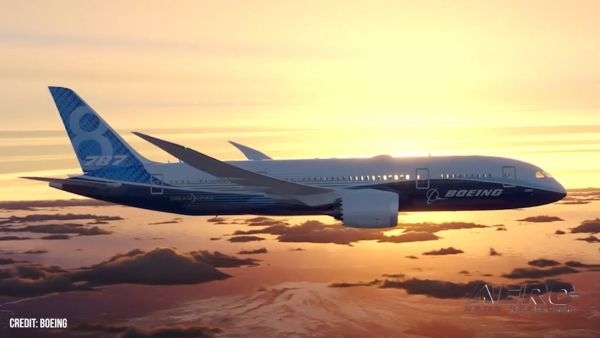Sat, Mar 02, 2013
Boeing Say Extensive Testing Will Be Required Before Airplane Is Flying Again
While FAA Administrator Michael Huerta says that Boeing's proposed solution to the battery issues that have grounded the fleet of Dreamliners worldwide "looks to be very comprehensive," he still can not speculate as to when the long-awaited airliners will be flying again.

Bloomberg Businessweek reports that Boeing head of commercial airplanes Ray Conner told reporters in Japan that the proposed fix is "permanent," and that batteries from GS Yuasa would still be incorporated into the airplane. He said that Boeing has not identified anything in the proposed solution that would indicate it is not "the appropriate thing to do. The solution set that we've put in place provides three layers of protection," he said.
In testimony before the House Transportation Aviation Subcommittee this week, Huerta said "with regard to the Boeing 787, we are working around the clock to conduct a comprehensive review of the critical systems of the aircraft, including the design, manufacture and assembly of the Dreamliner. As part of that review, we are working closely on a data-driven process to identify the cause of the recent battery issues and the mitigations for them.
"Last week, we met with senior executives from Boeing to discuss the status of ongoing work to address the 787 battery issues. We will carefully analyze Boeing’s proposal to address these issues. But the safety of the flying public is our top priority and we won’t allow the 787 to return to commercial service until we’re confident that any proposed solution has addressed the battery failure risks."
Huerta told the committee that the solution proposed by Boeing would first try to prevent the individual cells of the batteries from overheating. Should there be an overheating issue, the second layer is designed to keep that cell from causing a thermal runaway in an adjacent cell. Finally, the solution would prevent damage to the airplane should there be a complete battery failure.
Bloomberg reports that Japanese government officials who were not authorized to comment on GS Yuasa's activities said that the company recommended to the FAA that Boeing should also devise a system that would assure that the proper amount of power is being supplied to the batteries at all times.
The actual cause of the battery fire has not been determined.
(Image provided by the NTSB)
More News
Klyde Wonders If The 'New' SouthWest Can 'Out-Spirit' Spirit... FMI: www.klydemorris.com>[...]
From 2012 (YouTube Edition): Extensive Expertise in Backup Solutions Makes MCIA Uniquely Qualified In This Market There's no such thing, in aviation, as TOO much caution... hence t>[...]
Aero Linx: Historic Aircraft Association (HAA) The Historic Aircraft Association (HAA) was founded in 1979 with the aim of furthering the safe flying of historic aircraft in the UK>[...]
Jamming Denotes emissions that do not mimic Global Navigation Satellite System (GNSS) signals (e.g., GPS and WAAS), but rather interfere with the civil receiver's ability to acquir>[...]
"Respectfully, U.S. and European airlines should not be even contemplating the future purchase of airplanes from Chinese military companies...” Source: US Representative Raja>[...]
 Klyde Morris (05.02.25)
Klyde Morris (05.02.25) Classic Aero-TV: Introducing The MD302--Mid-Continent's Standby Attitude Module
Classic Aero-TV: Introducing The MD302--Mid-Continent's Standby Attitude Module ANN's Daily Aero-Linx (05.04.25)
ANN's Daily Aero-Linx (05.04.25) ANN's Daily Aero-Term (05.04.25): Jamming
ANN's Daily Aero-Term (05.04.25): Jamming Aero-News: Quote of the Day (05.04.25)
Aero-News: Quote of the Day (05.04.25)



